Laudato Si’ Webinar: Part Five
August 13, 2020In May 2015 Pope Francis launched his encyclical with the subtitle “On Care for our Common Home” and the title “Laudato Si’” which are the opening words for a hymn composed by St Francis of Assisi in the 1200s.
For our time, this document is both relevant and important, since it highlights the priority that respect for the environment should have in Catholic life, and integrates the notion with what is central to our understanding of humanity’s relationship with God.
I am Josephite: Sr Lee’s Story
August 9, 2020Our second video for the recently launched series titled ‘I am Josephite’, features Sister of Saint Joseph Lee Tan.
About her ministry, Sr Lee said she is “working as a community organiser with a global movement of community alliances.”
You’re invited to view Sr Lee’s story in the video provided below:
So Small a Beginning: Part 5
August 8, 2020Sr Marie Foale speaks about the beginnings of the Institute of St Joseph for the Catholic education of poor children.
She believes that as a young Josephite growing up, she had a sense that one day Mary MacKillop and Julian Tenison Woods had made a spontaneous decision to found an order.
Geocaching
How did you learn about Mary MacKillop?
Maybe it was a book read, a movie, or a visit to a museum. However, thousands of people every year, do none of these things, but do go GEOCACHING! Geocaching is the world’s largest treasure hunt and it can lead you to a journey through the story of Mary MacKillop.
In 2000, when GPS became widely available, a man named Dave Ulmer hid a container, called a cache, in the woods. He noted the co-ordinates of his hide and spread the news to his friends. The first person to find it using a GPS could keep what was hidden in the cache. He also put inside the cache a piece of paper, so that friends could leave their names as finders, even though they didn’t get the prize.
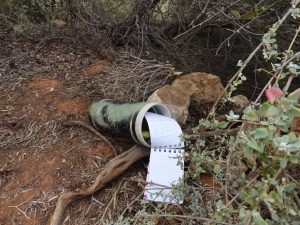
This was the beginning of a worldwide game called “Geocaching.” Friends of Dave went and did their own hides for other friends to find, and consequently many more joined in the fun. In fact, there are now 7 million people looking for more than 3 million caches hidden across the world. And over 150 of those hides are placed at significant sites of the Mary MacKillop story.
Each ‘hide’ in Geocaching has a page on the website with a story about the hide, clues (e.g. size of the container and other hints like, “in a tree”) and a map to find it. When someone finds the hide, they leave their name on the paper inside the cache and type a message on the website.
The first hide for the Mary MacKillop cache series was hidden at Mount Street, North Sydney near the site of her burial place. The hides have now extended to be in all states and territories, as well as New Zealand, Ireland and Scotland. Caches are now near Museums for Mary MacKillop, schools, Statues, Plaques, streets and parks all connected to Mary MacKillop’s story
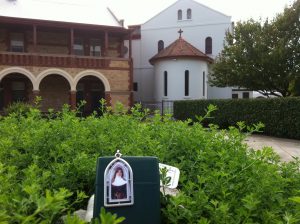
People from all over the world are discovering these hides and learning about Mary MacKillop. In many cases, they had not previously heard of her story. Unlike books, geocaching allows for a physical adventure to places of significance in Mary’s life. Posts on the website by finder’s attribute to this…
I have travelled this road to work for many years. Never knew Mary started this school in my town.
So, if you would like to know more about Mary MacKillop you could read a book, surf the web or visit one of the museums. Alternatively, download the Geocaching App on your iPhone (or visit the website), hit the ‘find a geocache’ button and follow the directions.
A great way to do a pilgrimage… no bookings required!
Happy Geocaching!
Watch a video explaining geocaching here
Julianne Murphy rsj
A Day in the Life: Irish in Australia / Ireland
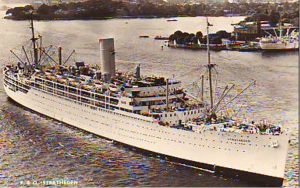
The invitation to write an article on “Irish in Australia/Ireland” evoked many memories around the generic involvement of the Irish in the Congregation as well as my own personal memories. On reading the stories of Saint Mary of the Cross MacKillop I learnt that there were Irish women among her first companions. One of the earliest was Rose Cunningham who joined Mary in Penola and went with her to Adelaide. Sadly, Rose’s life took a turn for the worse in 1918. She had been working as a governess in Penola. Over time, Rose showed signs of mental illness in the budding Institute. Eventually she had a complete breakdown, was admitted to a mental asylum where she spent 48 years before her death.
Ireland: The History of Newmarket
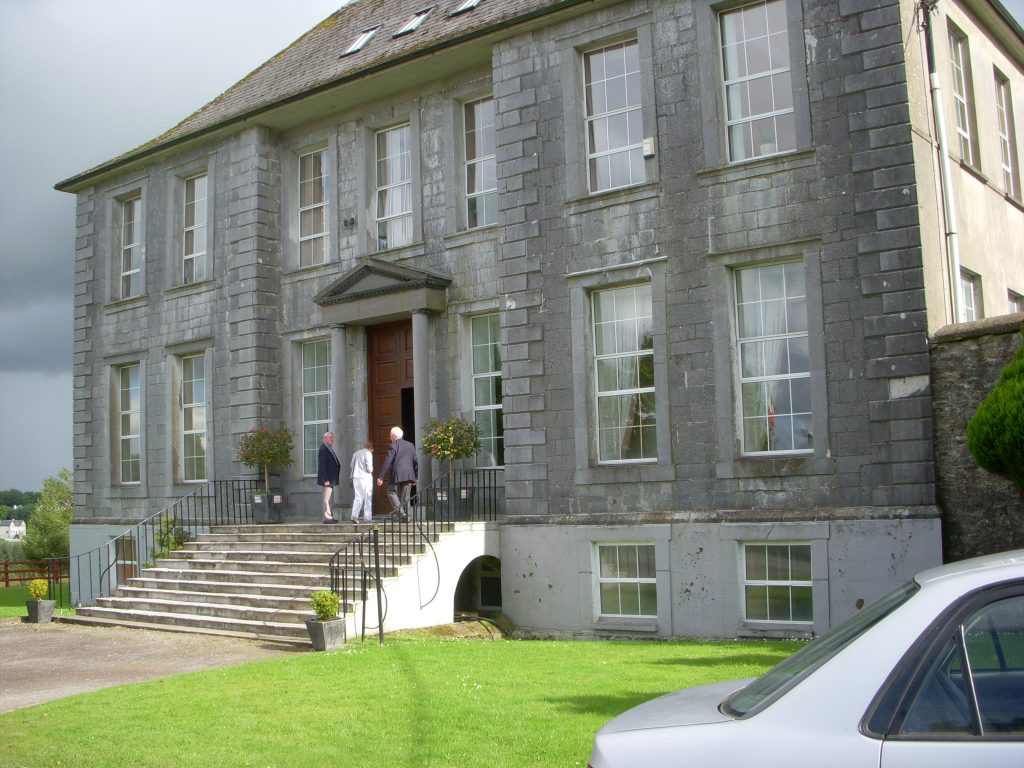
Teachings from a 295-Year-Old House on how to Survive a Pandemic.
As the coronavirus pandemic was invading our world, in came a request to write about the grand old Irish house, Newmarket Court in County Cork. Initially this felt rather strange but in researching the life of the 295-year-old house with a chequered history, some strategies for surviving in the new-normal, which is so abnormal, were revealed!
Reflection on Mary MacKillop
St Mary MacKillop’s Example.
 This year (2020), Australia will celebrate the tenth anniversay of the canonisation of St Mary MacKillop. Let us reflect on Mary MacKillop’s characteristics and the features of her courageous life that gave her sainthood.
This year (2020), Australia will celebrate the tenth anniversay of the canonisation of St Mary MacKillop. Let us reflect on Mary MacKillop’s characteristics and the features of her courageous life that gave her sainthood.
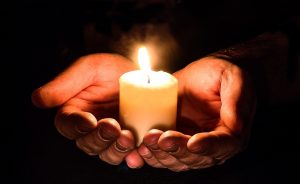 “Holiness, the heart of canonisation, consists in doing the will of God. That is why in those last years of paralysis in her wheelchair Mary was far from being a ‘retired saint’. She was a saint at her very best, because she was doing the will of God in most trying circumstances. It is not achievement that makes saints, it is holiness.” Paul Gardiner SJ 2010.
“Holiness, the heart of canonisation, consists in doing the will of God. That is why in those last years of paralysis in her wheelchair Mary was far from being a ‘retired saint’. She was a saint at her very best, because she was doing the will of God in most trying circumstances. It is not achievement that makes saints, it is holiness.” Paul Gardiner SJ 2010.
Consider:
- Mary endured many trials during her life. Take time to name for yourself what you believe enabled her to rise above these obstacles;
- What do you see as Mary’s saintly qualities that gave recognition to her as a saintly woman whom we recognize as a great example throughout the nation and indeed the world?
- How does Mary MacKillop’s example help us to endure the obstacles in our daily life?
Spend some time in quietness and prayer thanking God for your own and for God’s incredible care.
Michele Shipperley rsj
Candle image: Hands Open Candle by Myriams-Fotos obtained from Pixabay. Used with permission.
Saint Mary MacKillop Feast Day 2020
Greetings on the feast of Saint Mary MacKillop.
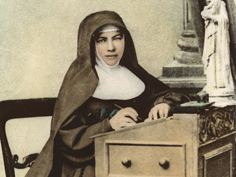
Celebrating the feast of Mary MacKillop in 2020 will be different for many of us. During these past months people across the world have been dealing with the reality and impact of the coronavirus. For many places where devotion to Saint Mary MacKillop has grown, this year’s celebration of her life will be different. With limited attendance in churches, the celebration of Eucharist for many will be through live stream. With pilgrimage sites not accessible for people, we need once again to draw upon our creativity and find different ways to mark this special day in the life of the church. What encouragement might Mary MacKillop offer us at this time in the life of the world. In 1907 she wrote to the Sisters:
Mary MacKillop is with us. Her own experience of life leads us to be in deep communion with her as we celebrate. We remember that Mary herself suffered from ill-health. She is close to all those whose health has been impacted by the COVID-19. She was close to death on a few occasions and found comfort in those who shared these times with her. She writes:
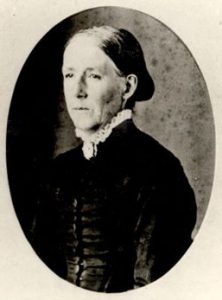
Mary MacKillop also knew the pain of loss and grief in her life. Mary felt deeply the loss of each member of her family. Perhaps her greatest loss was that of her mother Flora who was drowned in a shipwreck off the coast of Eden in New South Wales. At this time, she writes to her brother Donald:
For those who are losing their jobs and finding themselves unemployed, Mary MacKillop also knows what this experience is like. Her father was not able to hold down a permanent job leaving the family constantly on the move and placing extra stress on family life. It was this that caused Mary to find work at Sands and Kenny to support the family.
The opening prayer of the Liturgy for her feast says: “Holy God, source of all goodness, you show us in Mary MacKillop a woman of faith who lived by the power of the cross.” On this feast day let us be mindful that Mary MacKillop stands at the cross with us encouraging us to keep alive the flame of hope, bringing solace to those who have lost loved ones or employment, and comforting those whose lives have been changed for ever through the COVID-19 pandemic. For Mary MacKillop the Cross became the Tree of Life. Walking in and through the Cross she drew strength from the God who loved her. Mary MacKillop embraced the suffering in her life and shows us how to persevere in the face of adversity. We take to heart her message:
On this feast, ‘may we share in her courage, see with her vision, and love with her heart.’
May Mary MacKillop’s deep love for you be your gift this day.
Sr Monica Cavanagh
Congregational Leader
You’re invited to view a video titled ‘Celebrating the feast of Saint Mary MacKillop’ below:
Mass will be live streamed from the Mary MacKillop Memorial Chapel, North Sydney at 10:00am AEST on her feast day (Saturday 8 August 2020). Please find the link provided below:
Feast Day Mass live streamed from Mary MacKillop Memorial Chapel
Footnotes:
[1] Lesley O’Brien, Mary MacKillop Unveiled, p. 145
[2] Mary MacKillop 17 June 1886
